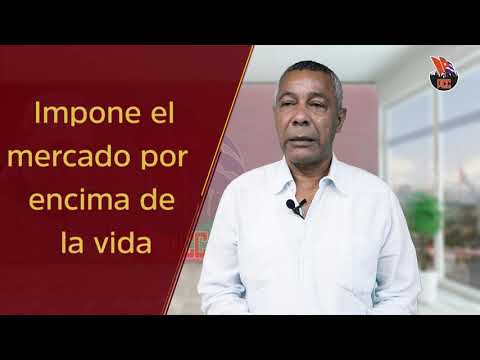Contenidos
Partido comunista pueblos de españa
podemos spain
On May 11, 2009, Carmelo Suárez participated in Athens, as secretary general of the PCPE, in the presentation of a joint document of 21 communist parties of the European Union in view of the June 7 elections to the European Parliament,[7] to which the PCPE was running alone.
For the autonomic elections held on March 25, 2012 in Asturias and Andalusia, the PCPE also participated. On this occasion, they ran for the first time in more than two decades in all the Andalusian provinces, thanks to the creation shortly before the elections of a cell of the PCPE in Almería.[citation needed] In the Galician autonomic elections of October 21, 2012 the PCPE contested, together with the communist collective Forxa in the same candidacy, which took the name of Comunistas da Galiza (Galician Communists). [citation needed] For the elections to the Basque Parliament, however, Euskal Komunistak-PCPE only presented a candidacy in the province of Vizcaya, with the support and participation of the youth organization Gazte Komunisten Batasuna (GKB),[8] a split of Gazte Komunistak (the youth of the PCE-EPK).
united left (spain)
On May 11, 2009, Carmelo Suárez participated in Athens, as general secretary of the PCPE, in the presentation of a joint document of 21 communist parties of the European Union in view of the June 7 elections to the European Parliament,[7] to which the PCPE was running alone.
For the autonomic elections held on March 25, 2012 in Asturias and Andalusia, the PCPE also participated. On this occasion, they ran for the first time in more than two decades in all the Andalusian provinces, thanks to the creation shortly before the elections of a cell of the PCPE in Almería.[citation needed] In the Galician autonomic elections of October 21, 2012 the PCPE contested, together with the communist collective Forxa in the same candidacy, which took the name of Comunistas da Galiza (Galician Communists). [citation needed] For the elections to the Basque Parliament, however, Euskal Komunistak-PCPE only presented a candidacy in the province of Vizcaya, with the support and participation of the youth organization Gazte Komunisten Batasuna (GKB),[8] a split of Gazte Komunistak (the youth of the PCE-EPK).
communist party of spain (marxist-leninist)
Nov 29, 2021 | Movimiento ObreroThe struggle that the metal workers of Cadiz have been developing, for better working conditions, for a better future and for a dignified life, has only been achieved by breaking with the “social pact” which advocates, in short, is the…
Nov 29, 2021 | Movimiento ObreroThe struggle that the metal workers of Cadiz have been developing, for better working conditions, for a better future and for a dignified life, has only been achieved by breaking with the “social pact” that advocates, in short, the “social pact” that advocates, in short, the…
portuguese communist party
The II Congress, held on July 8, 1923, elected César Rodríguez González -who had been co-founder of the PCOE in 1921- as general secretary of the PCE. Already at that time the PCE feared involution and called for workers’ unity. On September 13, General Miguel Primo de Rivera, in collusion with King Alfonso XIII, carried out a coup d’état and established the dictatorship. The premises of the PCE were closed and the arrests of communist militants followed one after the other, including the secretary general.
The Communist Party began to create a Popular Army practically as soon as the war began with the formations that made up the Fifth Regiment of Popular Militias, which came to number 70,000 anti-fascist fighters and which laid the foundations of the new military organization. The 5th Regiment provided the nascent People’s Army with command cadres.
Closely aligned with the USSR, the signing of the Ribbentrop-Molotov Pact did not arouse serious objections within the party, which modulated its anti-fascist discourse while the pact was in force. When the war broke out in September 1939 after the invasion of Poland by the Nazis, the party issued a manifesto signed by José Díaz and la Pasionaria in which they stated:




